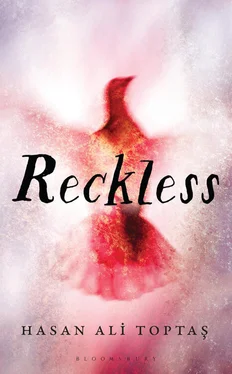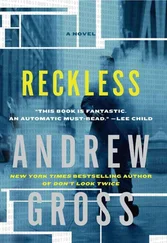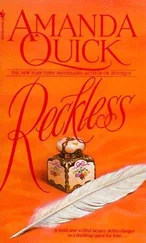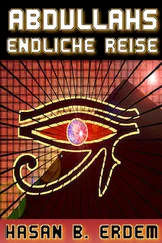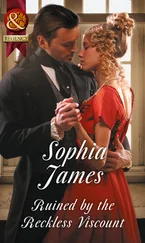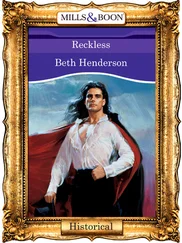‘The wedding’s about to begin,’ said Nurgül Hanım, when she saw Ziya at his window. ‘Since yesterday this house has been too small for you. So let’s get you breakfast and then you can go outside and watch.’
‘All right,’ said Ziya.
After breakfast he went outside, with the bird still in his mind.
By then, the neighbours had raised a flagpole from their chimney; just underneath they had put a large pine branch, which they had decorated with red ribbons, and strings of sweets, and popcorn, and balloons of all colours. Hands on hips, head thrown back, Hacı Veli was looking up happily at the embroidered flag. Then lethargy came over him. He pulled himself together and hurried over to the cooking pots in the corner of the courtyard, stopping next to the women busy chopping meat on boards. ‘Do you have enough meat?’ he asked. ‘Should I kill another goat?’
‘It would be a waste, master,’ one of the women replied. She tilted her head to one side, almost in deference for the goat that might be killed. ‘Soon the girl will be coming with Reşat’s gold on her forehead, bringing a ram from her household. We can’t forget that.’
‘All right, then,’ Hacı Veli mumbled.
After giving the piles of meat a good long look, he returned to the chairs lined along the wall. Waving fretfully in their direction, he said, ‘These have been waiting all morning for the musicians. What’s kept them so long?’
His son had come down from the roof, and now he stood there at the bottom of the ladder, dressed in his best and looking down at his father.
‘Take that ladder away,’ said Hacı Veli. ‘Don’t let it stay there. God protect us! Just think if some children got it into their heads to climb up there and lost their footing.’
The son picked up the ladder and disappeared into the house. ‘We’ve sent out the right favours with the right invitations, I hope?’ Hacı Veli called after him, leaning in his direction as he did so. ‘I hope we haven’t sent handkerchiefs to the houses that were supposed to get towels, or soaps to the houses that were supposed to get handkerchiefs, or matches to the houses that were supposed to get soaps, eh?’
‘Don’t worry,’ said the son, coming back out of the house. ‘We took great care. Nothing got mixed up.’
‘Fine,’ mumbled Hacı Veli.
Then suddenly he remembered the tips, and thinking it would be discourteous to take out all that money and count it in front of so many people, he rushed back towards the house. His wife was just coming out with a tray of boiled vine leaves.
‘What a commotion!’ cried Hacı Veli when he saw her. ‘I completely forgot to do the tips!’
As she passed, his wife gave him a gentle smile.
Once inside, Hacı Veli sat down on the side of the sofa, took out his wallet of dark brown leather with flowers decorating the edges, and set about arranging the tips that he would soon be handing out left, right and centre. First he set aside the money for the musicians who were late arriving. He did so with some annoyance, crushing the notes under his thumb. Then he put aside the money for the cook who would, when the time came to feed the guests, stand in front of the pots and play games with him, saying This ladle just won’t budge, sir. Oh dear, I wonder what we should do? Then he put money aside for the men bringing the ram from the girl’s house, and after that for the men bringing in the baklava on that huge engraved tray. Who else did he have to tip, who else, and for what exactly? As he racked his brain, he remembered the person who was going to pound the meat and the wheat for the keşkek , and the person who was going to bring in the bride, whose carriage would take the turn too fast and graze the gate on the way into the courtyard where the wedding would be celebrated. The bride can’t get down here , he would say, this gate is too tight. Honestly. It just won’t let me in . Then he remembered his visit to the girl’s house for the dowry, and the child who would just sit there cross-legged on that trunk. As he put aside some more money, he could already hear that spoiled little voice. I’m not budging unless I get my tip in advance, by God, not even for the president! After doing all this he spent some time gazing in annoyance at the banknotes on the sofa, as these scenes played out in his mind.
Then suddenly he was knocked over by the blast of a clarinet. Black Davut had somehow managed to creep into the room and put his instrument right next to his ear.
‘Where on earth have you been?’ cried Hacı Veli, gathering up the banknotes as fast as he could. ‘Did you bring the others with you?’
Black Davut answered with his clarinet.
‘Shut that thing up!’ cried Hacı Veli. ‘Answer like a man!’ His eyes sparkled with an affectionate anger. ‘Are they here, or aren’t they?’
Again, Black Davut answered with his clarinet.
As he did so, he looked straight into Hacı Veli’s eyes, grinning childishly, as the clarinet sparkled.
‘All right then,’ said the other. He nodded. ‘Understood.’
After that they went outside together.
Seeing the crowd in the courtyard, Hacı Veli buttoned up his jacket. Then he walked over to the musicians to shake their hands. ‘Welcome,’ he said. ‘You have brought us great joy.’ Then he took out the tips from his bulging pouch and placed them in their pockets. ‘So let’s get going,’ he said. ‘The place is yours.’ He pulled the chairs back a bit further, and then he looked down at the second clarinet and the trumpet now coming out of their cases. Right then it seemed strange to him to be talking like this to people he joked with every day over a game of cards in the coffeehouse, acting as if they were strangers who had come from afar. Truth was, they no longer resembled the people he saw every day at the coffeehouse; all resemblance disappeared the moment they picked up their instruments. They were now different people altogether. They held themselves in a new way. They looked distant. Even the lines on their faces seemed to have changed. The people now pouring into the courtyard were searching the crowd as if they recognised no one, least of all Hacı Veli, and that made him feel as if he himself were drifting away from the town and all those who lived in it. As they shook his hand, and took their tips, and offered their congratulations, each one seemed to be smiling at him from a great distance. ‘May the young ones enjoy endless bliss, and may they bring you many grandchildren.’
‘Thank you,’ said Hacı Veli to each and every one of them. ‘Thank you so much.’
Then one man raised his trumpet, and another two raised their clarinets, and a fourth his drum, whose hoop was painted blue and ringed with enormous bells. Soon the courtyard was humming with their music. As the most light-footed of the townspeople came forward, they played a beautiful Harmandalı . Then, to give the boys a chance to dance, they played the Grand Arab Zeybek , the Tavas Zeybek and the Kerimoğlu Zeybek . Opening their arms like eagles, they soared higher and higher, not just in the eyes of those watching, but in the sky of their dreams. They kept coming back to earth, though. Squatting down. Dropping to their knees. Thumping the earth. Thumping the earth to its core. And when an echo returned from that dark and distant place, these boys would soar up again, to spin round and round. Without warning, they’d stop short, to gaze out into the distance, deep in thought, before they raised their arms again, taking flight on an unseen wind. And soon they were boys no longer. They were crested eagles, soaring high in the air. They took their time, these youths, and it may well be that the musicians had planned to play the Aydın Zeybek or the Serenler Zeybek , but at this point Hacı Veli came out of his corner to whisper in their ears, reminding them that the time had come for the keşkek -pounding ceremony.
Читать дальше
